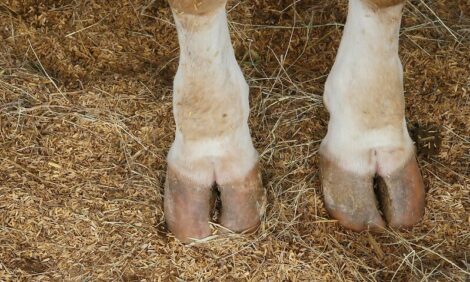



DAIRY EVENT: Pneumonia Costs More Than £100/head
UK - In dairy heifer calves, pneumonia during the first three months of life has been found to reduce first lactation milk yield by 2.2 per cent and increase age at first calving by two weeks.Financially, the yield loss is worth £39/head on a 7,000 litre first lactation at 25p/litre. At £1.65/day, two weeks of additional rearing time costs £23. The cost of an average pneumonia case has been calculated to be £43/calf. Together, these amount to £105 per case.
Despite these serious consequences and widespread farmer recognition that a herd’s next generation is a valuable asset, Pfizer vet Matt Williams suggests that the early stage of pneumonia can be a bit like an annoying background noise, like a milking parlour vacuum pump or a noisy fridge compressor, for example.
“After a time, you may stop noticing unless it suddenly stops,” he says. “Similarly, when you put out feed or spread new bedding, you can get used to hearing a few animals coughing. Most of the time it may not sound serious, but it is the case that familiarity can breed acceptance.
“As a result, investigation may be delayed until the respiratory infection has become more serious, affecting more animals, and more difficult to treat successfully. Yet there are farms where dairy heifers rarely get even a mild respiratory infection.”
According to Mr Williams speaking at the Dairy Event and Livestock Show, the main elements of heifer rearing programmes that promote strong immune systems and minimal pneumonia incidence are:
- Every new-born calf receives three litres of good quality colostrum, ideally from its own mother, within the first six hours from birth.
- Calves live in a low moisture, clean air, no-draught environment. This is made possible by efficient drainage throughout the inside of the building and around the immediate external area, good ventilation, and plentiful fresh dry bedding.
- Minimal stress arising from weaning, disbudding, over-stocking, transport, mixing into new groups, etc. Avoid imposing several stress factors at the same time.
- Sound nutrition and fresh clean water available 100 per cent of the time.
- Vaccination against the three main viral instigators of respiratory disease--RSV, Pi3 and IBR--and the BVD virus, which causes immunity suppression and to which 95 per cent of UK dairy herds have been exposed.
- Good stockmanship, with constant awareness and active observation for the early signs of respiratory infection--not just coughing, but increased breathing rate and less aggressive feeding than usual.
“At this time, when dairy replacements are in short supply, a herd’s next generation is a particularly valuable asset that warrants tender loving care, and attention to detail, from the moment each calf is born,” adds Mr Williams.
TheCattleSite News Desk


